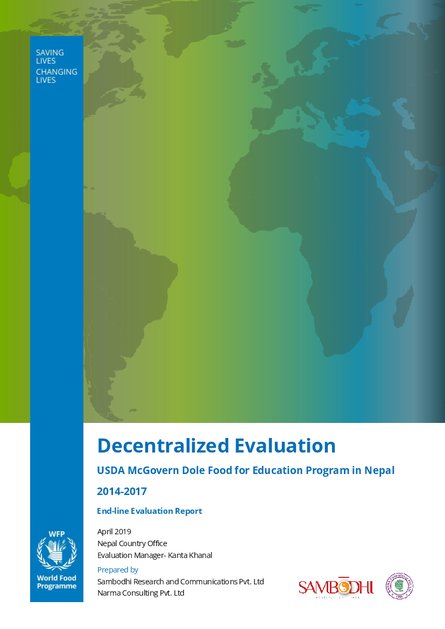
The evaluation was commissioned to evaluate the key results areas of FFEP- learning outcomes and health and nutrition outcomes and was intended for both accountability and learning purposes. It focused on assessing the relevance, effectiveness, efficiency, impact, sustainability, adequacy, transparency and timeliness. Overarching evaluation questions focused on How appropriate is the operation? What are the output and outcome level results of the intervention? What is the cost-benefit of the programmes implemented?
The evaluation covered the following School Feeding; and Capacity strengthening.
Key evaluation findings included FFEP or School Meal Programme (SMP) is a holistic approach to programme operation. Over the last four decades, the SMP has been a driving force behind increasing school enrolment and continues to be so. However, the last phase of the programme contributed much towards not only ensuring school enrolment but largely on enhancing quality education service delivery. Amalgamation of Early Grade Reading Programme (EGRP), School Infrastructure Development Programme (SIDP), Digital Literacy Programme (DL) into SMP has enabled better learning environment at Schools. The programme has been effective is improving the learning outcomes of school aged children during the programme period. Knowledge of students on health and hygiene has significantly increased over the project period. The programme has been efficiently handling the logistical arrangement to transport food to schools. Leakages in this system have remained limited and WFP together with Government counterparts have ensured that the logistical mechanisms run smoothly. In terms of cost-efficiency, the DL component is highly cost-intensive and has a limited coverage narrowing the scope for outcomes.